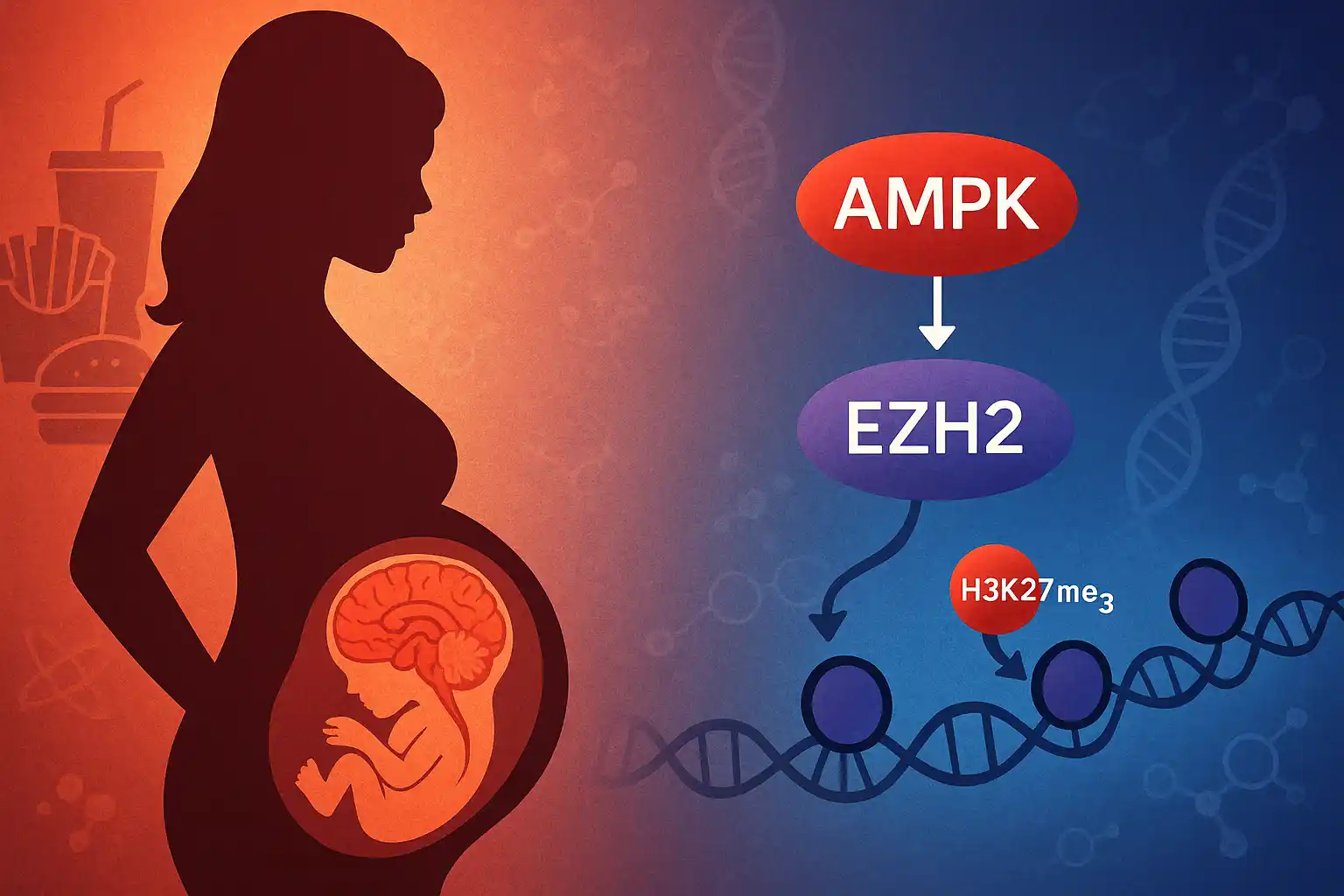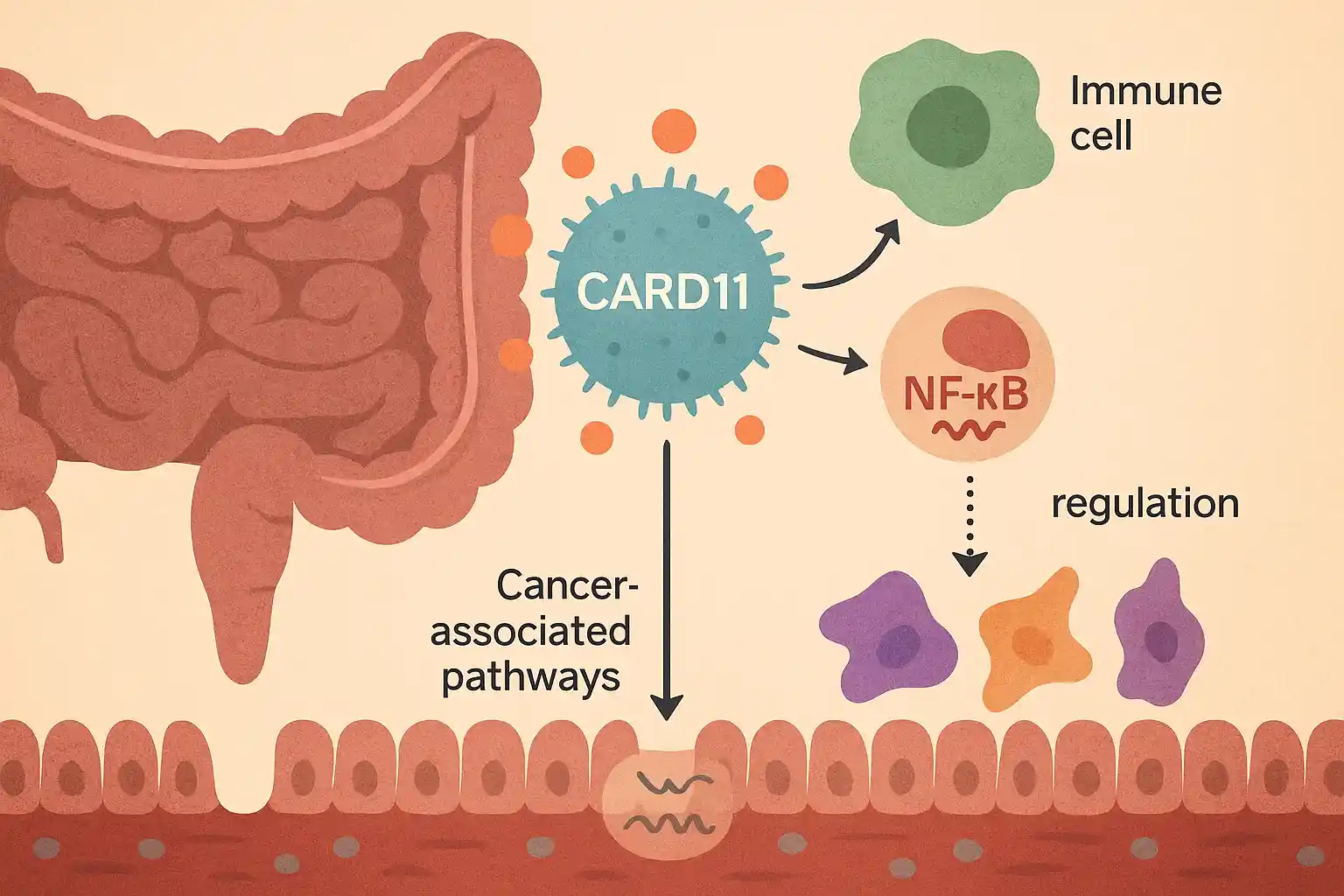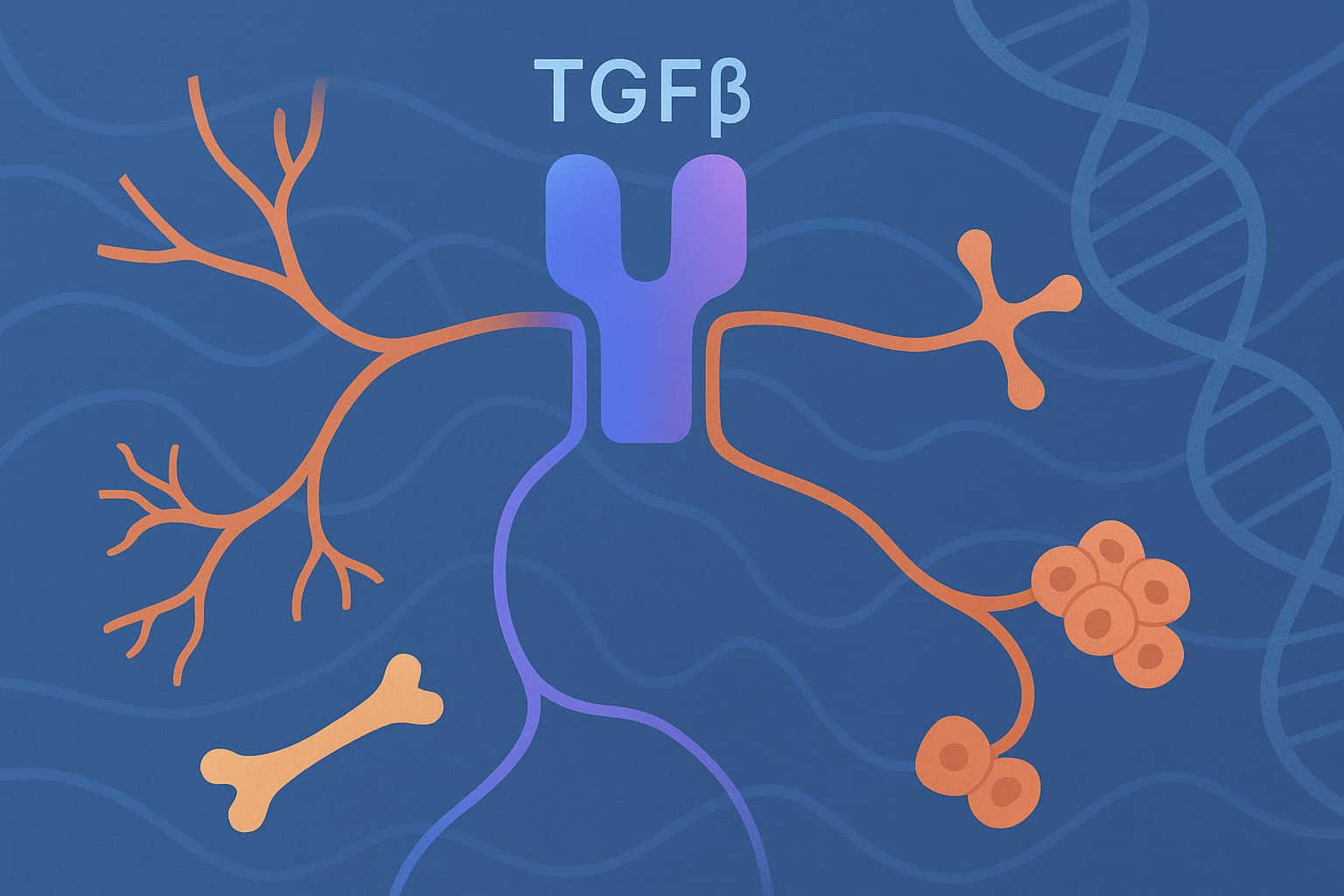
Maternal Obesity Disrupts Epigenetic Brain Development Pathways in the Embryo
🧠 Introduction
Emerging evidence links maternal health directly to fetal brain development. A new study explores how maternal obesity alters the molecular architecture of the developing brain, highlighting a critical interaction between metabolic signals and gene regulation.
🔍 Research Summary
Our researchers used a rat model of maternal obesity—induced by a high-fat diet before and during pregnancy—to explore how metabolic imbalances influence embryonic brain development. The focus was on the cerebral cortex at embryonic day 14.5 (E14.5), a key period for neural differentiation.
Key findings include:
- Reduced neural progenitor proliferation and increased neuronal marker expression.
- A developmental shift from neurogenesis toward astrogliogenesis.
- Dysregulated expression of genes involved in key signaling pathways and reduced AKT phosphorylation.
- Altered epigenetic landscapes, particularly reduced global H3K27me3 levels—a repressive histone mark.
- These changes were linked to decreased expression and increased phosphorylation (Thr311) of EZH2, a histone methyltransferase, and its enhanced interaction with AMPK, a key metabolic sensor.
The study demonstrates that AMPK-mediated phosphorylation of EZH2 reduces its enzymatic activity, thereby relaxing repression on neurodevelopmental genes. This molecular cascade appears to be a critical mediator between maternal metabolic state and embryonic brain fate decisions.
🌍 Broader Impact
This research offers a powerful glimpse into how maternal obesity can epigenetically reprogram the fetal brain, increasing the risk of long-term neurological challenges. The identified EZH2–AMPK interaction provides a promising mechanistic link between maternal metabolism and neural development.
The findings are highly relevant to APMAD’s Brain Health and Metabolic Disorders themes, highlighting opportunities for early intervention and prevention in prenatal care. As part of APMAD’s mission to advance precision medicine, such insights pave the way for targeted maternal health strategies aimed at reducing neurodevelopmental disease risk from the earliest stages of life.
📎 Reference
@article{Alawathugoda2025,
title = {Maternal obesity alters histone modifications mediated by the interaction between EZH2 and AMPK, impairing neural differentiation in the developing embryonic brain cortex},
journal = {Journal of Biological Chemistry},
volume = {301},
number = {2},
pages = {108173},
year = {2025},
issn = {0021-9258},
doi = {https://doi.org/10.1016/j.jbc.2025.108173},
url = {https://www.sciencedirect.com/science/article/pii/S0021925825000201},
author = {Alawathugoda, Thilina T. and Sheikh, Muhammad Abid and Challagandla, Anil Kumar and Dheen, S. Thameem and Emerald, Bright Starling and Ansari, Suraiya Anjum}
}






Leave a Reply